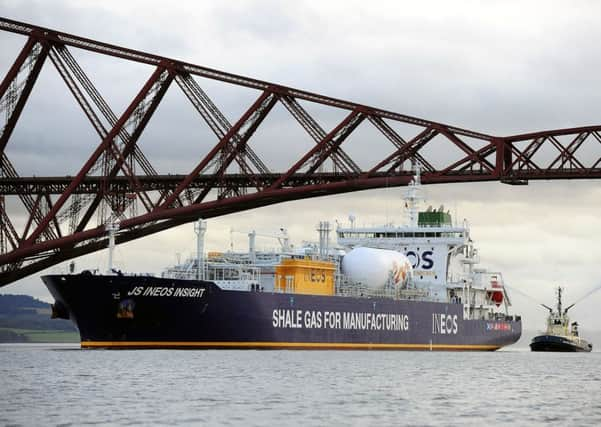Ilona Amos: Let's take this chance to give our views on fracking


The ban, which outlaws the process of fracking, or hydraulic fracturing, for shale oil and gas and coalbed methane, was put in place to allow evidence to be gathered on the potential impacts on health, the environment, local communities and the economy.
Fracking involves injecting a mixture of water, sand and chemicals at high-pressure into rock fissures deep underground to release gas trapped inside. It is known to have caused earthquakes and there have been reports from other countries of various adverse effects.
Advertisement
Hide AdAdvertisement
Hide AdA moratorium is also in place in Wales, but the technique is permitted in England, where horizontal drilling has been given the go-ahead for the first time – despite concerns raised during the UK’s first ever venture into shale gas, near Blackpool in Lancashire. Operations there in 2011 triggered two minor earthquakes, which prompted activities to be suspended.
Nearly 2,000 square kilometres of land across the central belt has been earmarked as suitable for potential exploitation of unconventional oil and gas. Scotland’s key reserves are found in the Midland Valley, though quantities have been described by the British Geological Survey as “modest” – an estimated six billion barrels of shale oil and 80 trillion cubic feet of shale gas.
Shale gas is still at the exploratory stage in the UK, but supporters say it is an important energy source that could become a major new industry for Scotland. They say home-grown supplies would help guarantee fuel supplies, reduce dependency on foreign oil, and provide jobs.
Critics claim fracking poses a serious risk to people and the planet through effects such as toxic air pollution, contamination of water, and seismic events. It has also been blamed for reduced house prices.
Announcing the moratorium, Scottish ministers vowed to gather “detailed and robust evidence” and create “space and time” for people to join the debate. They said they would take evidence from all interested parties – including chemical giant Ineos, which owns Grangemouth refinery and exploration licences for large swathes of the central belt. The firm has come under fire over a deal to import shale gas from the US, with the first delivery arriving here in September.
A vote in the Scottish Parliament last summer came out narrowly in favour of a full ban on fracking. SNP members abstained but the Scottish Greens, Liberal Democrats and Labour joined forces to defeat the Tories.
The information gathered about fracking has been presented in the form of six reports, though these are not exactly conclusive. The health impact assessment found the evidence available was “inadequate” as a basis to determine whether the practise would pose a risk to Scots. The economic study was not much clearer. Researchers found allowing shale gas extraction could generate up to £3.9 billion in tax revenues, create more than 3,000 jobs and produce the equivalent of 18 years of Scottish gas consumption. It also warned that low oil and gas prices would make it uneconomic.
Today, almost exactly two years since the ban was enacted, a consultation is being launched to garner public opinion on whether or not fracking should have a part in Scotland’s future.
Politicians have said they are seeking the “widest possible range of voices” to take part. So this is the chance to speak out and make sure you get your say in this important decision.